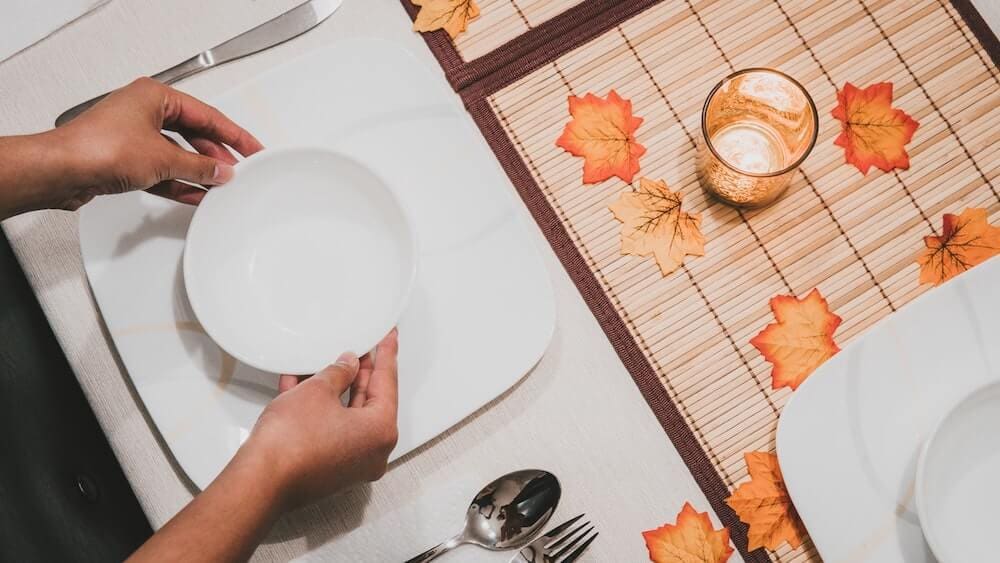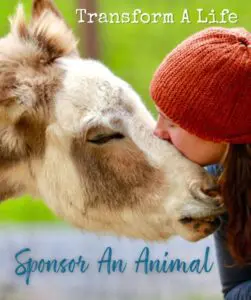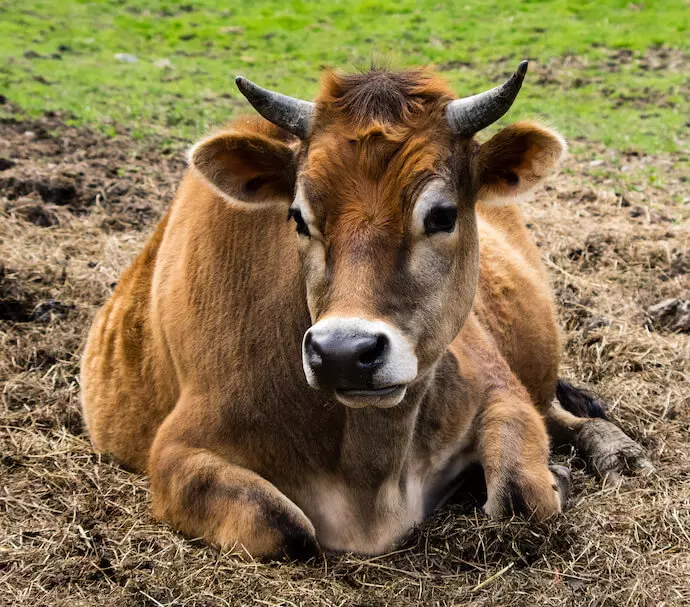
By Chef Sara
Picture the following scenario: you’re seated at a festive Thanksgiving table, surrounded by beloved family and friends. The atmosphere is joyful and easygoing, with nary a mention of politics, religion, or other contentious topics. As the courses are revealed, each and every dish is beautiful, delicious, and vegan – and best of all, every person enjoys the food with gusto and without complaint. As all the guests part for the evening, there’s a lingering feeling of peace and goodwill in the air.
Sound like a fantasy? More often than not, it is. For most folks, Thanksgiving is often far from the peaceful meal we hope for – and when you’ve committed to living a compassionate vegan lifestyle, it can feel even more emotionally charged.
Whether you’re a longtime vegan, a new vegan, or just beginning to test the plant-based waters, Thanksgiving can be an emotionally difficult time. Watching our family members, whom we otherwise love and respect, as they cut into the flesh of an animal we know to be a friend can feel like a knife to the heart. To make things worse, showing obvious signs of distress can provoke jeers from insensitive relatives. “Why are you so sensitive?” and “Animals are here for us to eat!” are just a couple of the remarks heard from loved ones over the years. Comments like that can cut deep. Our first instinct may be to engage in a fierce debate, but much like discussing religion or politics at the table, these conversations often end with both parties feeling sullen, angry, and misunderstood. How, then, can we set ourselves up with the greatest odds of enjoying a holiday that often comes loaded with so much emotional baggage?
Worry not: I’ve got your back! Here are five tips that will help you navigate the holiday season with compassion and grace, both to others and toward yourself.
1. Make special requests in advance.
Most of us make Thanksgiving plans well in advance, which makes this tip easy to implement. Reach out to the host, and let them know that you’re vegan, if they don’t know already. If you’re comfortable, you might even start by asking if the entire meal can be made vegan: some hosts are open to trying new things! If this isn’t an option, there are other things you can request, such as:
– “If turkey is an absolute must-have, could it be served in the kitchen instead of the center of the table?”
– “Would you be willing to swap in non-dairy milk and butter for the usual dairy in the mashed potatoes?”
The list goes on and on! Decide on what you’re comfortable asking, then do it – remembering to be kind and considerate in your approach. A little kindness goes a long way, and it can’t hurt to ask! (And while we’re on the subject of food, be sure to check out tip #5 below!)
2. Practice self-care before and after the event.
Self-care is important year-round, but especially during the holidays, when tensions can run high. Set yourself up for success by taking the time to take care of yourself. My self-care toolkit includes the following: meditating, practicing yoga, taking a long walk outdoors, drinking a cup of my favorite tea, journaling, connecting with my partner, and snuggling with my kitties. (Feel free to borrow from my list, or come up with your own!) It may feel indulgent, but making the time to be centered before a potentially stressful event will calm your mind and help you react in a more level-headed way to situations that might otherwise push your buttons. And by practicing self-care after an emotionally taxing day, you’ll feel rejuvenated, restored, and ready to bounce back quickly. It’s often easier to practice compassion toward others than it is to ourselves, but keep this in mind: by showing kindness and compassion to ourselves, we can avoid burnout and be even better advocates for the animals.
3. Memorize this mantra: “Breathe, reflect, then respond”.
Even if you decide to stay silent during the entire Thanksgiving dinner (which I’ve tried in the past, and don’t recommend!), just by being openly vegan in a roomful of non-vegans, your fellow diners may start to feel threatened. By living according to your deeply-held values of kindness and compassion, friends and family can feel uncomfortable with the way they’re living their own lives, which can lead to hurtful, defensive comments being directed your way. I know that it’s incredibly tempting to engage in a heated debate when the opportunity arises, but before you speak, repeat this mantra to yourself: “Breathe, reflect, then respond”. By taking a moment to collect your thoughts instead of speaking immediately out of anger, you’ll be able to take the higher ground and avoid an all-out fight, which is no fun for anyone. One of my go-to responses when dealing with dinner-table hostility goes something like this: “I’d be happy to discuss my lifestyle choices with you later, but for now, let’s just enjoy this meal together.”
4. Remember that you’re not alone.
According to
a 2019 poll by the Vegetarian Resource Group, 2% of adults in the US (roughly 6 1/5 million people!) are vegan. So while you may be the only vegan at the table, take heart in knowing that there are many others out there who feel the same way you do.
5. Bring food – and recipes!
For many non-vegan folks, the idea of “vegan food” conjures up images of boring salads and bland, beige grains. Thanksgiving is the perfect time to gently shake up those preconceived notions with mouthwatering vegan goodies. Bring along a favorite dish or two to share, and don’t forget to bring copies of the recipes to distribute to interested guests. Once they’ve tried your delicious vegan dishes, they’ll be much more likely to cook them themselves!
In a bind and not sure what to make?
Sign up for Chef Linda’s Thanksgiving cooking class. It’s a live, online class where you can cook in your own kitchen and give some of our delicious and compassionate recipes a dry run before the big day. You can also check out Recipe Round-Ups for
Main Courses and
Sides and Desserts. These recipes have delighted students in our sold-out vegan Thanksgiving cooking classes for years and we think your friends and family will love them, too!
And remember, as you sit around the Thanksgiving table, silently remind yourself of all the wonderful things you love about each person dining with you. It’s easy to focus on the things that separate and divide us, but there are also many wonderful qualities that unify us and make us stronger. Look for the good in your loved ones, speak kindly whenever possible, and remember to breathe. You’ve got this!








Thanksgiving is really tough for me even though I bring enough vegan food for all (I usually make carrots and sweet potatoes and a dessert). I am the only vegan in the family and having that poor turkey on the table sort of ruins my fun with my family. Then there is broccoli with cheese sauce and scalloped potatoes and stuffed clams…ugh! I would really rather avoid the whole thing but I want to see my daughter.
I’m sorry to hear that such an important and special day comes with family stress. Unfortunately, you are not alone, and perhaps you can take some comfort in that. No one wants to have to choose between your values and your family. Stay strong, stay true, and remember to be kind to yourself. With every dish you bring, you may be planting seeds, so don’t give up!
What a heartfelt and thoughtful post, Sara. THANK YOU!
Thanks for this advice. About to navigate my first Thanksgiving as a vegan. Already anxious over the difficulty.